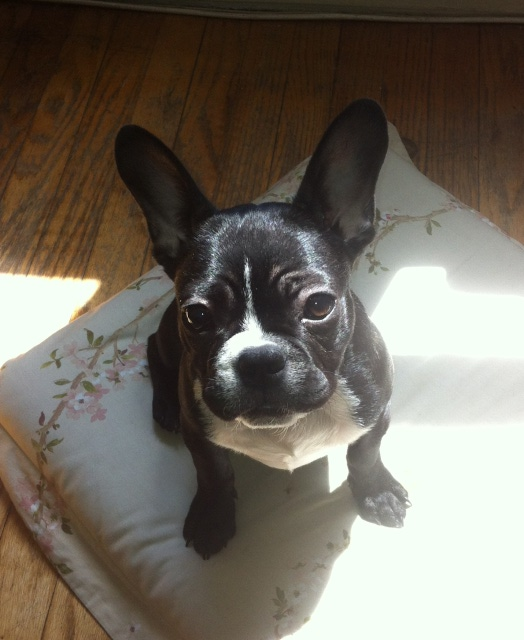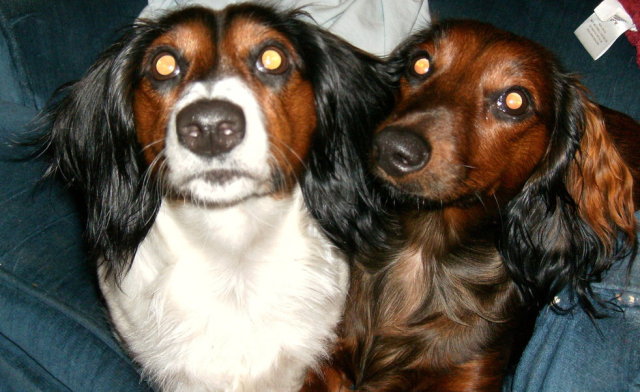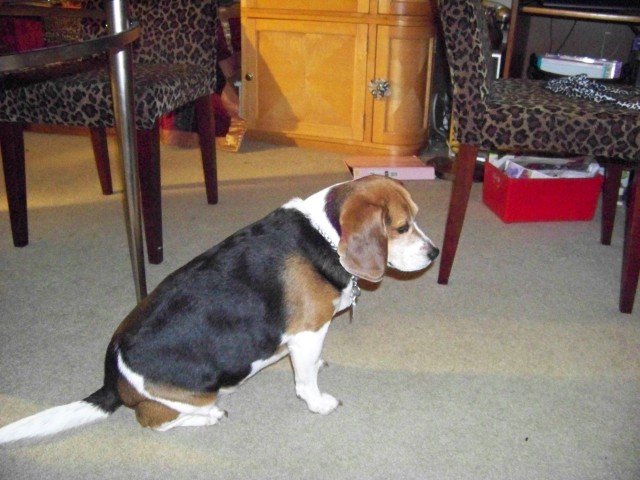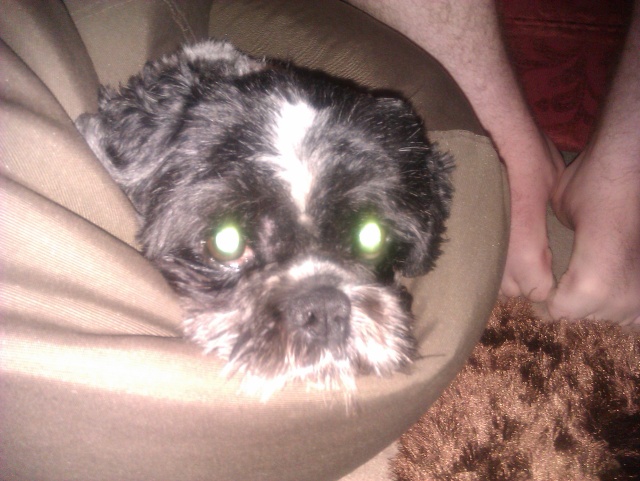QuestionMy husband and I adopted a 7 month old German Shorthair Pointer two months ago from a humane society. Apparently, She was found abandoned on the side of a rural road in South Carolina. Luckily, she was turned over to the local humane society. She is a very loving dog, housebroken and knows a few commands. She is especially attached to me. She is shy, fearful and extremely submissive. However, when we picked her up and brought her home, she had no trouble fitting into our lifestyles. We are both retired, so we are home quite a bit. She is crate trained, so if we go out for a bit, she has no trouble in her crate. Just recently, in the past few weeks, she has been urinating in our bedroom. Usually, it happens while she's playing with her toys. I don't know if she just gets too excited and urinates on the spot. She loves to go outside in our backyard, and I walk her every morning - about 1+ miles. What is causing this recent bout of urination? She was spade just before we picked her up from the shelter. She will also start obedience school next month. Thanks for any help you can give me!
AnswerWe're on our second GSHP. We got the first from the SPCA in Chicago. The second was given to us a breeder and its mother was on the cover of Dog Fancy a couple years ago. We got it because it was a "boot licker" meaning he would not leave the owner and go out to fetch the bird. Both were fantastically intelligent. The first knew how to get out of the crate as fast as we could put him in and in the second week at home I turned around and there was a dog dish with a can of dog food upright in it on the bed. He had gotten the dish from the sink, picked out a can of dog food from the pantry and brought it in to say "feed me." All to say that they bond very quickly when adopted and are more intelligent than quite a few humans I know.
Kennel Odor Eeliminator (KOE) by Thornell. is the professional urine scent remover. You'll need to clean the scent from the spots first because they draw the dog back to the same spot.
The body language and behavior indicates the dog was likely abused. The dog is now begining to mark its territiry to ward off other dogs. He is claiming the bedroom as his area.
OK, well you are off to a lot of good starts especially the training. That will enhance the bonding and should involve the entire family. In our classes we have the owners take turns and children old enough to handle the dog are also given some time to heel the dog.
To rule out any biological problems it may have developed that were acquired before adoption visit the vet and make sure there is no bladder, kidney dysfunction, or other issues, as Heart worm, parasites or infection that can also cause loss of bladder control. They will likely want a stool sample and likely recommend a blood test. If the adoption agency had vaccinations done there are some few cases of delayed reaction of the immune system. There is a problem in our area of one vet using out dated vaccines but charging full price.
There can also be issues left over from the neutering surgery.
If its simply behavioral then standard potty training should fix it. You walk the dog so make sure it goes and praise the dog when it goes. Regular scheduel is very important, if the times vary by half hour or more between days, young dogs have a harder time adapting to the interval between potty stops.
You may need to use the potty training pads on an easy to clean (tile) surface to lure the dog away from the bedroom. I would also keep the dog play area out of the bedroom and in a more cleanable area: kitchen garage, basement etc. There are dogs that will urinate as a submissive and excitement reaction. This usually ends as the anxiety level goes down and the mental stress returns to a more neutral level. Vets have medications to help this as well.
Regards,
Henry Ruhwiedel
Westwind Kennels LLC

 Trying to housebreak pup & she stops going
Question
Rubie Rooh
Hello - I have a 4 month old
Trying to housebreak pup & she stops going
Question
Rubie Rooh
Hello - I have a 4 month old
 Dogs Figthing
Question
Stella and Scarlett
I have 2 minature dachshun
Dogs Figthing
Question
Stella and Scarlett
I have 2 minature dachshun
 bladder issues in rescue pups
Question
collie-shepherd pups
We have had two rescued s
bladder issues in rescue pups
Question
collie-shepherd pups
We have had two rescued s
 Crystal the beagle
Question
Crystal
Crystal is 8 1/2 years old,she is a be
Crystal the beagle
Question
Crystal
Crystal is 8 1/2 years old,she is a be
 having problems with toilet training
Question
Oscar
hello
A friend of ours dog, Oscar is a 5
having problems with toilet training
Question
Oscar
hello
A friend of ours dog, Oscar is a 5